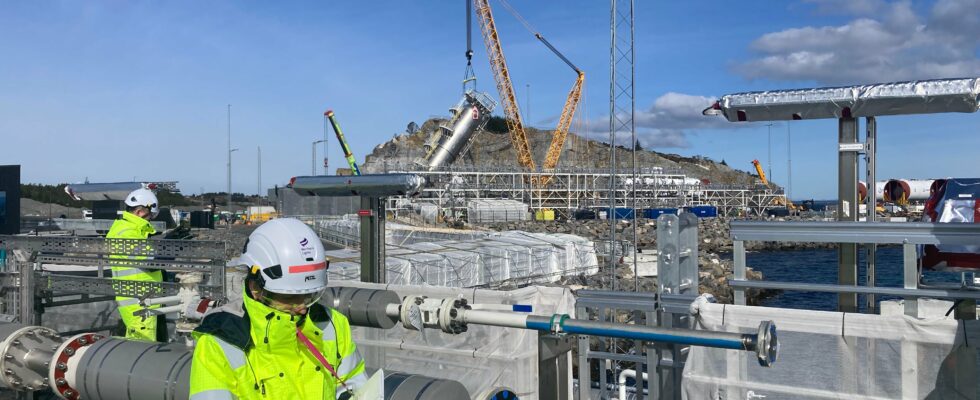This is yet another undesirable effect of Brexit. In order to permanently bury their CO2 under the sea, and thus more easily meet their environmental commitments, some European Union countries – such as France – would really need British waters. This would prevent them from sending their carbon dioxide much further north, off the coast of Norway. However, since the United Kingdom decided to leave the Union, this is no longer possible from a legal point of view.
“Because of this invisible barrier across the North Sea, EU plans largely ignore the UK’s storage potential,” says Toby Lockwood, director of technology and markets at the Clean Air Task Force, a Boston-based NGO. But it is far from negligible.
The UK’s announced offshore projects represent nearly 40% of the total capacity under development in Europe. Including the UK in the EU strategy would accelerate decarbonisation across the continent. And would probably reduce the bill for large industrial emitters located in northern France, such as ArcelorMittal. For now, Norway is winning the day thanks to its well-studied geology and offshore facilities that can be used to store large quantities of carbon. “In the short term, many companies are planning to ship their CO2 by ship to Norway or Denmark, via pioneering projects such as Northern Lights,” confirms Toby Lockwood. This is a more expensive option than transporting by pipeline.
These will arrive in a second phase. The Norwegian group Equinor is studying, in partnership with the Belgian gas network manager Fluxys, the possibility of building, by 2030, a network linking the future Norwegian CO2 storage sites to the ports of Zeebrugge, Dunkirk and, potentially, Eemshaven (Netherlands). A colossal project that extends over a distance of more than 1,000 km! However, there is a simpler way. In comparison, a pipeline transporting CO2 and linking France or Belgium to the United Kingdom would be four times shorter. “Opening up access to British storage can increase competition and help lower costs, while reducing the risk linked to the inability of the various sites to develop in time or to be temporarily out of service for whatever reason,” believes Toby Lockwood.
“Negotiations with the EU could last for years”
Currently, the total cost of transporting CO2 to landfill varies between €70 and €250 per tonne. However, in the long term, if storage sites are built in areas where the geology and regulations allow, prices could fall below €60 per tonne across much of the continent. Leaving the UK out is therefore not a good option. But how can the legal hurdle of Brexit be overcome? “The UK appears to be developing its own network to transport and bury its domestic emissions as a priority. Although imports from France or other countries would increase the profitability of its facilities, negotiations with the EU could drag on for years,” says Toby Lockwood.
The lack of harmonisation between the UK and EU is already causing frustration. Earlier this year, Scottish company Carbon Capture Scotland Limited signed a deal to store CO2 emissions in Denmark, with the company’s founders calling it “ridiculous” that there was no UK option available. “If storage remains concentrated in Norway, it could become difficult for some countries in the middle of Europe like Austria. However, the future will depend a lot on how the carbon price evolves,” predicts Toby Lockwood.
Under current EU law, companies that bury their CO2 are exempt from this tariff. The higher the price of CO2, the more economically attractive carbon capture can be for some emitters. “Some projections are that the price of carbon will rise to $150 per tonne by 2030. This could make underwater storage competitive, even if you have to pay a Norwegian company to do it,” says Toby Lockwood. But to get the best possible tariff, you’ll still have to take into account England.
.
